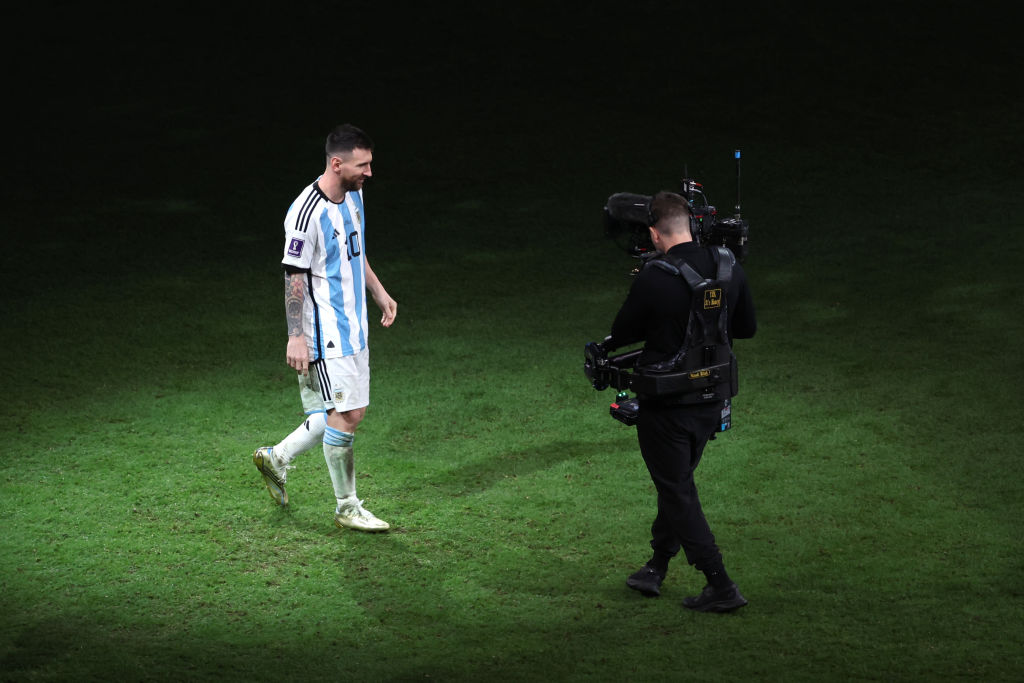Ed Warner on the sporting year that was

And so we reach the end of a year of sporting excess, or at least an excess of sport. Sunday’s FIFA World Cup Final was the calorific dessert that may well have caused you to come over all Mr Creosote, exploding under the temptation of just one more dish of must-see sporting competition. While we gorge, we should spare a thought for those – individuals, teams, entire sports – who may crumple under our demands for more, more, more.
2022’s sporting calendar was ridiculously crowded, a legacy of earlier Covid postponements, stretched business models and, at the end, football’s pinnacle tournament staged unprecedentedly in a European winter.
No international federation could afford to skip an edition of its flagship event, from the Olympics downwards. Hence both Tokyo 2020 and football’s Euro 2020 taking place in 2021, with knock-on effects across sports.
Elite athletics was difficult to escape with three back-to-back-to-back competitions this summer. India’s cricketers arrived a year late to complete their tour of England, bumping the hosts’ total number of tests across the year to a ludicrous 14. And leading English football clubs returned to competition within 50 hours of the final whistle in Qatar.
What to make of Brighton and Hove Albion taking to the pitch last night at The Valley against Charlton Athletic, minus midfielder Alexis Mac Allister, one of Argentina’s triumphant stars? This says more probably about the EFL’s struggle to create meaning for its main knockout cup than it does about FIFA’s decision to chop European seasons in half.
It’s difficult to argue that quality suffered across a range of sports. Athletes went for trebles in Eugene, Birmingham and Munich, providing high class competition. Jake Wightman besting nailed-on favourite Jakob Ingebrigtsen in the 1500m at the Worlds, anyone? England’s cricketers discovered a new way to win test matches under a new coach and captain. And women’s football and rugby carved out space for themselves in the public consciousness by delivering dramatic tension at the sharp end of their international tournaments.
The relentless cycle of many sports has taken its toll on coaches and leaders. The England men’s head coaches have been changed in rugby union and cricket. The GB athletics head coach went after less than two years in post, and the coach of England’s women’s rugby league team departed after a failure to reach the World Cup final. With the domestic football season stretching to a June FA Cup Final, the turnover of managers in season could yet reach record levels.
These coaches serve up sport for the paying public, whether in venue or via screen. There were signs this year that a surfeit of viewing choices was putting the squeeze on event organisers. Social media chuntered about empty seats at Wimbledon. The Rugby League World Cup struggled to fill stadia. And LIV Golf took place against backdrops of handfuls of spectators and only on free-to-view YouTube. Tickets were plentiful and often given away.
Will cricket or cricketers sink first under the weight of all the T20 tournaments that have sprung up around the world? How will F1’s drivers and massive supporting cast cope with 24 grands prix next year? Was it right that the NBA players strike was settled with an agreement to extend the season? And will we bother to care about football’s UEFA Euro 2024 qualifiers when they commence in March, especially which players are still match fit by that stage of the season?
Sit back then and watch sport tuck in its napkin, loosen its belt and eat fit to burst in 2023.
Shirt-off
That was a final for the ages. The three black stripes of Adidas ranged against Nike’s golden swoosh. $23bn of corporate revenues in 2021 vs $45bn. ResearchAndMarkets.com estimates that sales in the global football sportswear market were $77bn last year, with the shirt suppliers to Argentina and France leading the way.
Take a stroll round the Adidas and Nike stores in London’s latest shrine to consumerism, Battersea Power Station, though, and it will be clear that football deals merely provide kit companies with statement billboards for their leisurewear brands.
Needless to say, the Argentine captain’s personal boot deal is with Adidas. No way could the company allow ambush marketing of its shirts by the maestro’s feet. Not so much bend it like Beckham as three stripes like Messi. How cool is that?
Once in a sporting lifetime
There’s something a little dispiriting about the world’s greatest ever sprinter receiving the BBC’s SPOTY Lifetime Achievement Award at the tender age of 36. Usain Bolt bore the weight of global athletics on his shoulders for a decade and did so with exceptional good humour. Remember that sideways glance in his 100m semi-final at Rio 2016. And yet the sport has allowed him to slip from view. Five years retired and so much more for Bolt to achieve.
There have been younger winners – Simone Biles last year at only 24 – but what made the BBC decide now was the Jamaican athlete’s time? Is it calling time in some way on his possible future achievements in retirement?
Ed Warner is chair of GB Wheelchair Rugby and writes at sportinc.substack.com
